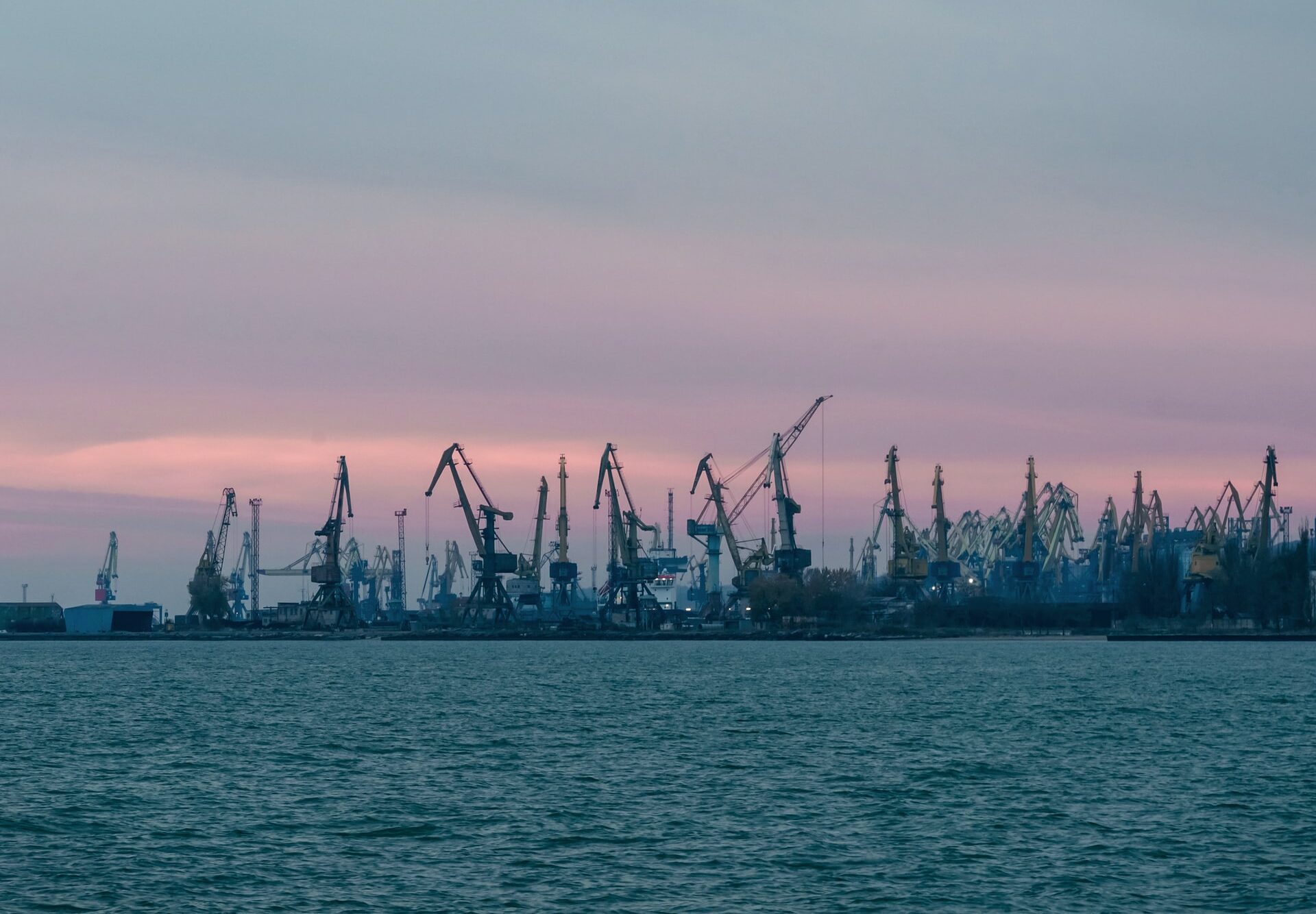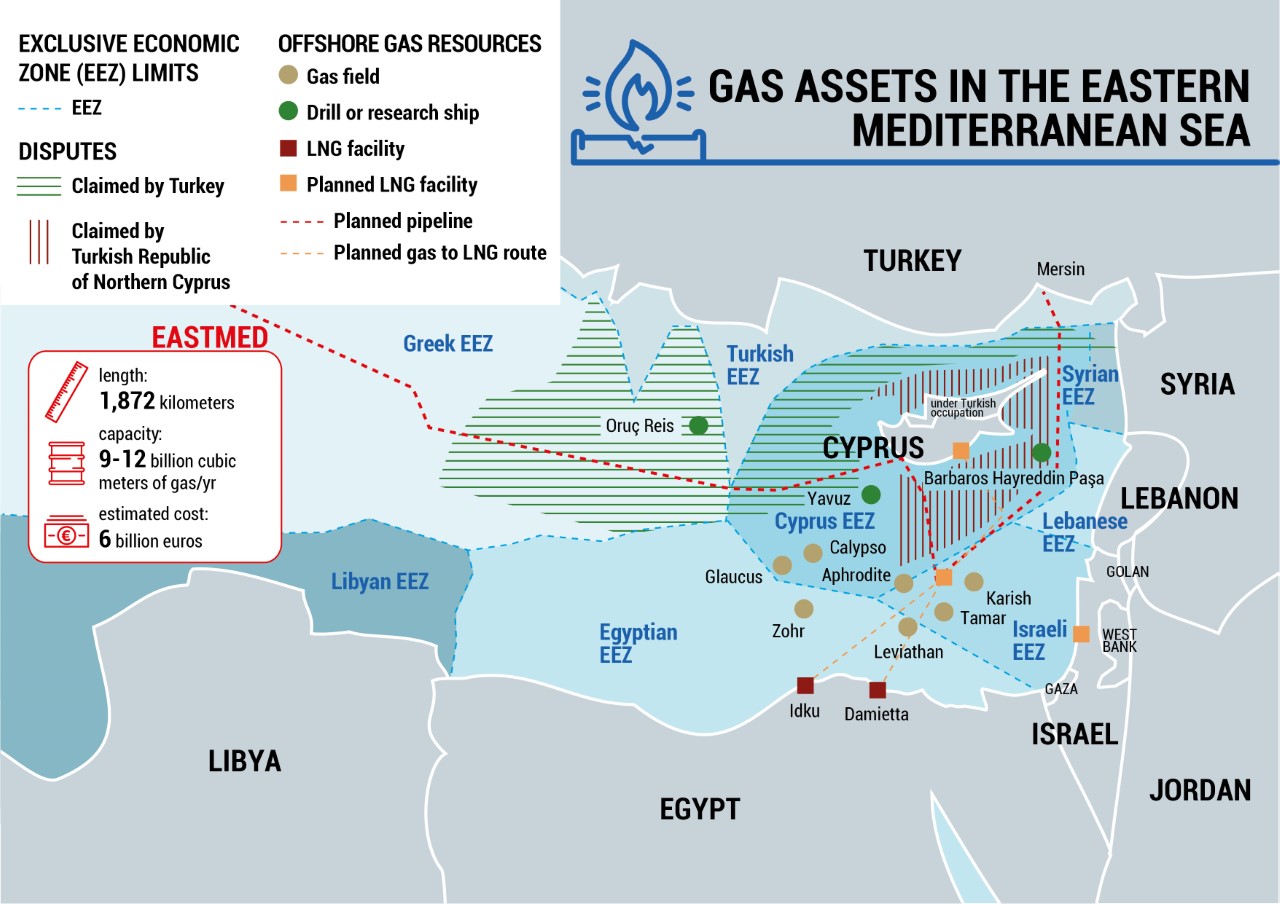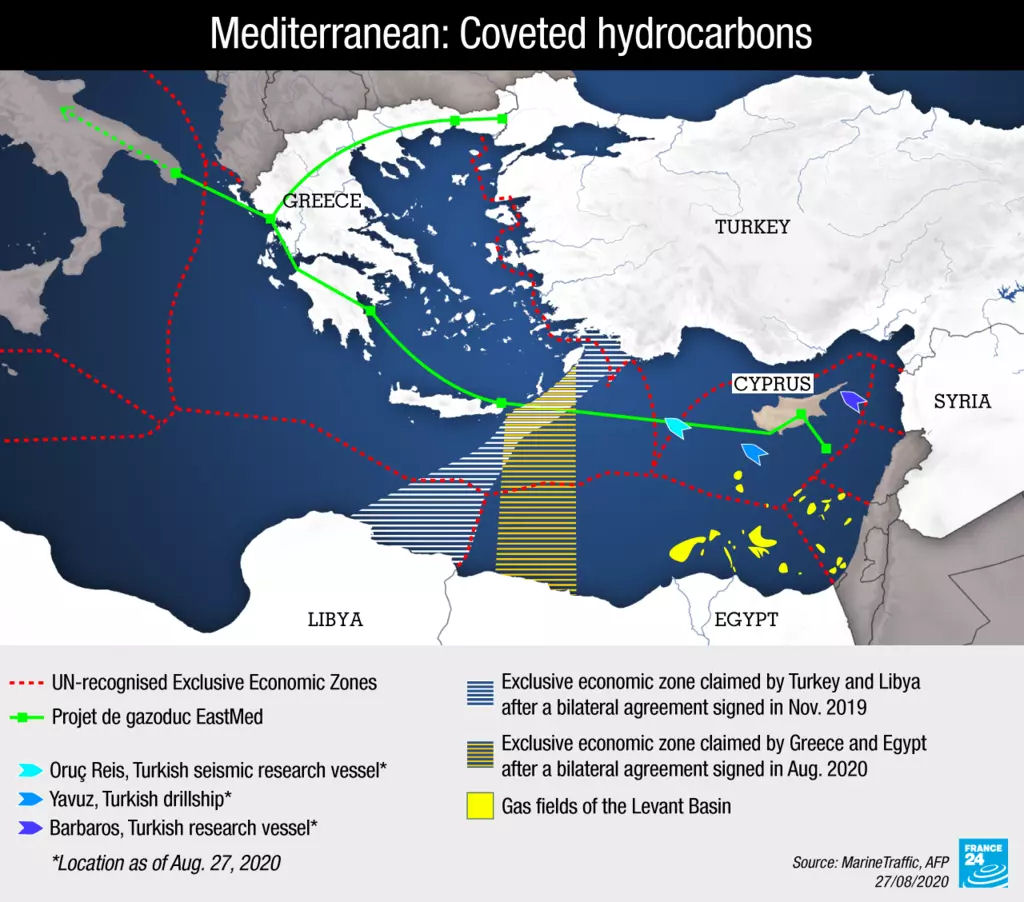War between states for gas in the eastern Mediterranean

The discovery of large volumes of natural gas in the Eastern Mediterranean has led to the emergence of two solid trilateral partnerships – on the one hand Cyprus, Greece, Israel on the other, Cyprus, Greece, Egypt – and a large excluded. All the details in the article by Laura Ponte for Aspeniaonline
In recent decades, huge volumes of natural gas have been discovered in the Eastern Mediterranean: quantities that allow some coastal countries to change their energy policies. Not only that: these discoveries have also led to the establishment of new forms of collaboration, useful for seeking an economic ratio between conflicting national interests in order to make the most of the region's energy potential; an example is the East Mediterranean Gas Forum.
In 2010 the Geological Survey (USGS), the National Geological Institute of the United States, published two documents in which it estimates that there are nearly 10 trillion cubic meters of gas, still undiscovered but technically recoverable, in the Eastern Mediterranean region. especially in the area between the Israeli and Egyptian basins. To have a yardstick, according to rough estimates because they depend on countless factors, an average Italian family consumes 1,000 cubic meters of gas per year.
Egypt is the country that, on a regional level, first developed the natural gas sector, since as early as 1979 it marketed some volumes of this fossil resource. However, only in 2015 thanks to the discovery of the largest offshore field in the region, Zohr, was it able to both fully meet the national energy needs, and to sign collaboration agreements with its neighbors, such as Israel, in order to export gas to the outside the region.
Israel, thanks mainly to offshore fields – under the seabed – Tamar and Leviathan reaches and exceeds the national energy demand. This is why it has exported its surplus to Jordan since 2017 and to Egypt since 2020. Cyprus has also found significant quantities of gas off its coasts, thanks to "Aphrodite": nevertheless, it has not yet managed to commercialize the gas as it does not have the infrastructure necessary for its transportation. However, the construction of some plants is underway, after the discovery between 2018 and 2019 of additional fields, Calypso and Glaucus, in the vicinity of Zohr.
In addition, gas research and development works within Cypriot waters have encountered an additional difficulty as some fields – Aphrodite and Calypso – are located in areas claimed by both the Ankara government and the self-proclaimed "Republic Turkish of Northern Cyprus ".

As for the remaining countries of the region – Lebanon, Syria, Turkey and Greece – they have not yet discovered considerable quantities of natural gas, even if Greece is part of the consortium created in 2020 for the possible joint exploitation of the major fields mentioned so far – East Mediterranean Gas Forum – together with Cyprus, Egypt, Israel, Italy, Jordan, and Palestine, which was later joined by France. Lebanon and Syria, due to the difficult internal situations, only managed to sell the first exploration blocks, within their respective Exclusive Economic Zones (EEZs), in order to start research and prospecting works.
Turkey and Greece, on the other hand, favored by their respective geographic locations, have competed with each other as key countries for the transport of natural gas: precisely due to problems in defining their respective EEZs, they have started some research works but have not yet succeeded. to find sufficient quantities of gas to be marketed.
From this rapid picture of the evolution of the natural gas sector in the countries belonging to the Eastern Mediterranean region, it is clear that, in general, conditions, placed at multiple levels of analysis, must coexist in order to positively determine its development.
First of all, there is a need for the reference State to have a solid internal economic situation both to cope with the huge specific investments for research, development and marketing of the resource, and to make the sector more attractive in order to obtain foreign financing.
It is also essential that the country has good diplomatic relations and effective international action, in order to mitigate disputes over territorial claims and to build transport infrastructures in synergy with other countries in the region.
These are rare conditions in an area such as that of the Eastern Mediterranean, impregnated with complex security dynamics, both international and internal to many countries.
The path is difficult but not impossible: in fact, in parallel with these discoveries, the States belonging to the region have already managed to find forms of collaboration and, in some cases, to transform some contingent factors into opportunities. In particular, two solid trilateral partnerships have emerged: on the one hand, Cyprus, Greece, Israel; on the other, Cyprus, Greece, Egypt. The two groups have promoted two different gas marketing models.
The first mainly promotes the construction of the EastMed gas pipeline, an infrastructure connecting the Israeli and southern European coasts, through Cypriot and Greek waters to the Italian coasts, which has received strong political support from both the European Union. – which included it among the projects of common interest – both from the United States – which officially supported it from its earliest stages. Both have observer status in the Forum, along with the World Bank.
The second trio cooperates both to create an electrical connection between the coasts of the three countries and Europe, and to develop Cypriot gas transport infrastructures in synergy with the only two liquefaction plants in the region. Sites in Idku and Damietta, two Egyptian cities, are useful for making the transport of gas more economical: by subjecting it to the liquefaction process it is possible to decrease the volume of a molecule up to 600 times.
It is also noteworthy that the Forum has seated representatives of conflicting entities, such as Israel and Palestine, at the same table. According to the statute of the consortium, the participants "promote collaboration between the Member Countries of the Forum to manage a sustainable, efficient and environmentally friendly use of natural gas resources".
The presence of Permanent Observers of the weight of the European Union, the United States and the World Bank obviously testifies to the strong support of the West for this new collaboration platform.
However, it should be highlighted that the big excluded from this regional energy match is for now the State with the longest coast that bathes the Eastern Mediterranean and with a complex network of already developed gas pipelines, Turkey. The geostrategic concept of Blue Homeland, which inspires the foreign policy of the Ankara government by aiming at a broad maritime projection of Turkish interests, has helped to make the portions of the sea between the Turkish-Cypriot and Greek-Turkish borders some of the areas strategically hotter than the region. It must also be taken into account that bilateral relations between Ankara and Tel Aviv and between Turkey and Egypt have frozen since 2011 and 2014 respectively – although there have been cases of partial cooperation and some recent signs of further openness.

In any case, the new challenges inherent in the energy transition have changed some of the cornerstones of the energy game in the Eastern Mediterranean Sea. The goal of net zero emissions by 2050 means that the short and medium prospects for the development of natural gas in the region have also changed, and are viewed more critically.
In the short term, because the states of the region are committed to investing in renewable energy. In the medium, both because a significant increase in the population in the states of the southern shore of the Mediterranean is expected, and therefore in their energy consumption and internal demand, and because it seems that the gas of the region will not be able to be exported massively for a lasting period. : and therefore it may not be profitable.
In fact, only 4.2% of the world's natural gas is found in the southern Mediterranean, of which 51% is located off the Algerian coast, 25% under the Egyptian seabed, 17% in Libyan waters, 6% in Israeli waters. The question is therefore whether it is a good strategic choice to build an infrastructure of 1,900 km, with an initial cost of 7 billion dollars, and then stop using it after 20 years.
However, the fields of the eastern Mediterranean would satisfy the need for an emergency energy source, even more so in the face of the Ukrainian crisis. Furthermore, the war has led Turkey and Israel to propose themselves as mediators between Moscow and Kiev (albeit so far without success) and to seek an enlargement of the actors actively involved in the regional energy match.
It will not be easy to reconcile all these partially conflicting factors and interests in order to make the region's gas market sustainable and internationally competitive. But it is a viable path, precisely on the basis of the concept of sub-regional cooperation, adapting it to partly new needs.
This is a machine translation from Italian language of a post published on Start Magazine at the URL https://www.startmag.it/energia/guerra-fra-stati-per-il-gas-nel-mediterraneo-orientale/ on Thu, 02 Jun 2022 05:53:20 +0000.
